Alabama gets federal assistance to help take drug dealers, drugs off the streets

In the state’s ongoing fight against the drug epidemic, Gov. Kay Ivey has put federal funds in the hands of law enforcement in hopes of reducing illegal drug use in the state by arresting those who buy or sell illegal drugs or falsely obtain prescription drugs. On Thursday, the Alabama Department of Economic and Community Affairs (ADECA) announces Ivey awarded nearly $1.6 million to the Alabama Law Enforcement Agency (ALEA) and the seven regional drug task force offices under ALEA. The task forces were formed in January 2018 and are made up of officers in local law enforcement agencies. “We must combat illegal and illegally obtained drugs that rob so many people of productive lives and destroy families,” Ivey said. “I am pleased to support this task force, and I am grateful to the men and woman who risk their lives to take drugs off our streets.” In less than a year since its inception, the statewide drug task force has been involved in 889 drug cases and has seized 463 pounds of marijuana, 179 pounds of cocaine and 29.3 pounds of heroin and opioids along with other drugs and 312 firearms. The task force is made up of 93 law enforcement officers representing 46 state, county and municipal law enforcement agencies. ALEA and the seven regional drug task force offices each received $197,500 in grant funding. Each regional office covers eight to 12 counties, although officers have powers in other jurisdictions. Funds will be used to cover overtime and operational expenses and equipment purchases. The ADECA is administering the grants from funds made available to the state from the U.S. Department of Justice (DOJ). “ADECA is proud to be a partner with Gov. Ivey and ALEA in this process that takes drugs and dealers off out streets and makes our communities safer,” ADECA Director Kenneth Boswell said.
Authorities arrest suspect in Thanksgiving shooting at Hoover mall where police killed man they thought was shooter

The Latest on a Thanksgiving night shooting at a mall in Alabama (all times local): 11:30 p.m. Authorities say they have arrested a suspect in a Thanksgiving night shooting at an Alabama shopping mall where police killed a man they thought was the shooter. The Alabama Law Enforcement Agency says 20-year-old Erron Martez Dequan Brown of Bessemer was charged with attempted murder in the Nov. 22 shooting at the Riverchase Galleria in Hoover. Inspector Frank Lempka with the U.S. Marshals in Atlanta said Brown was arrested Thursday morning at a relative’s home in South Fulton, just outside of Atlanta. Lempka said Brown was taken to the Fulton County jail for an extradition hearing to be sent back to Alabama. Emantic “EJ” Bradford Jr. was killed by an officer responding to the report of a mall shooting. Police said Bradford had a gun, and they initially blamed him for opening fire. They later retracted that allegation. ___ 10 a.m. Leaders of an Alabama city that’s been the target of protests since police shot and killed a black man in a shopping mall are asking the state for permission to release more information about the killing. Hoover city officials made the request during an appearance Thursday. They say they’ll look at releasing information on their own if no response comes by noon Monday. Demonstrators and relatives of Emantic “EJ” Bradford Jr. have pushed authorities to release video and other evidence. Bradford was killed by an officer responding to a report of a mall shooting on Thanksgiving. The state is investigating and so far has refused to release video and other information about the killing. A spokesman for the Alabama Law Enforcement Agency didn’t immediately respond to an email seeking comment. Republished with permission from the Associated Press.
SPLC sues ALEA for suspending Alabama licenses for unpaid traffic tickets

The Southern Poverty Law Center (SPLC) is challenging Alabama’s practice of suspending drivers licenses of individuals who fail to pay traffic tickets, arguing it violates the Fourteenth Amendment by “punishing persons simply because they are poor.” The SPLC filed a lawsuit against the Alabama Law Enforcement Agency (ALEA) last Monday in which it claims roughly 23,000 Alabamians are without a valid divers license because they’ve been unable to pay traffic tickets. “A suspended driver’s license has disastrous implications for individuals living in poverty,” said Micah West, SPLC senior staff attorney. “The U.S. Constitution prohibits the state from suspending a person’s driver’s license without first determining their ability to pay. Through this lawsuit, we hope to end this illegal practice in Alabama.” The lawsuit describes how, under an existing rule of criminal procedure, Alabama courts routinely suspend driver’s licenses for nonpayment of traffic tickets without prior notice, an inquiry into an individual’s ability to pay, or an express finding that nonpayment was willful, as required by the Due Process and Equal Protection Clauses to the U.S. Constitution. The ALEA carries out these suspensions and does not reinstate driver’s licenses until the individual has paid all outstanding fines and costs to the court. The SPLC filed the suit on behalf of three Alabama residents who had their licenses suspended. They seek a preliminary injunction to halt the practice while the case is before the court. Earlier this year, SPLC filed a lawsuit challenging similar practices in North Carolina and reached an agreement with the Mississippi last year that will result in the state lifting failure to pay suspensions for over 100,000 people. Lawsuits have also been filed challenging the suspension of driver’s licenses for nonpayment in Tennessee, Michigan, California and Virginia.
With the Census on the horizon, Alabama’s growing population already impacting driver’s license numbers
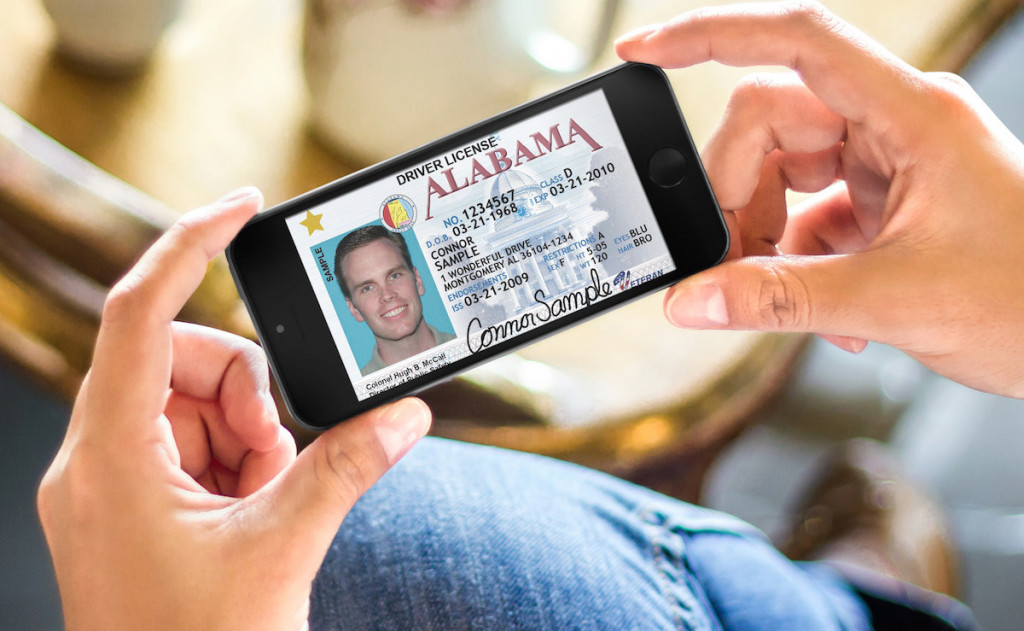
Sure the 2020 Census may still be more than a year away, but Alabama’s growing population is already making an impact when it comes to state issued driver’s licenses. On Tuesday, the Alabama Law Enforcement Agency (ALEA) said it’s adding an eighth digit to all new driver licenses issued by the state starting Dec. 1 to account for the state’s growing population. According to the AP, “Census statistics show the state’s estimated population at 4.9 million people in 2017. That’s an increase of about 2 percent since 2010.” But driver’s license numbers aren’t the only thing 2020 U.S. Census could impact. Depending on participation levels and what the results indicate, Alabama risks losing a seat in the U.S. House of Representative as well as a vote in the Electoral College, and also federal funds. Alabama’s Census lawsuit Back in May, Alabama 5th District U.S. Rep. Mo Brooks and Alabama Attorney General Steve Marshall filed a lawsuit against the federal government over what they said was the Census Bureau‘s “unlawful” decision to include of illegal immigrants in census data “used to determine the apportionment of the U.S. House of Representatives and the Electoral College.” “If the U.S. Census Bureau follows through with its plan to include illegal aliens in the 2020 census for purposes of apportionment, Alabama will lose both a seat in the U.S. House of Representative and a vote in the Electoral College,” explained Marshall. “Alabama’s loss will be another state’s gain, as states with a growing illegal alien population will be the beneficiary of this reapportionment. I have joined with Congressman Mo Brooks in filing suit against the federal government to stop the inclusion of illegal aliens in the census’s apportionment population. The Constitution does not permit the dilution of our legal residents’ right to equal representation in this manner.” The U.S. Census Bureau has until Tuesday, Nov. 13 to respond to the state’s lawsuit seeking to exclude immigrants living in the country illegally from U.S. Census counts.
John Merrill announces 92 percent of Alabama election complaints closed
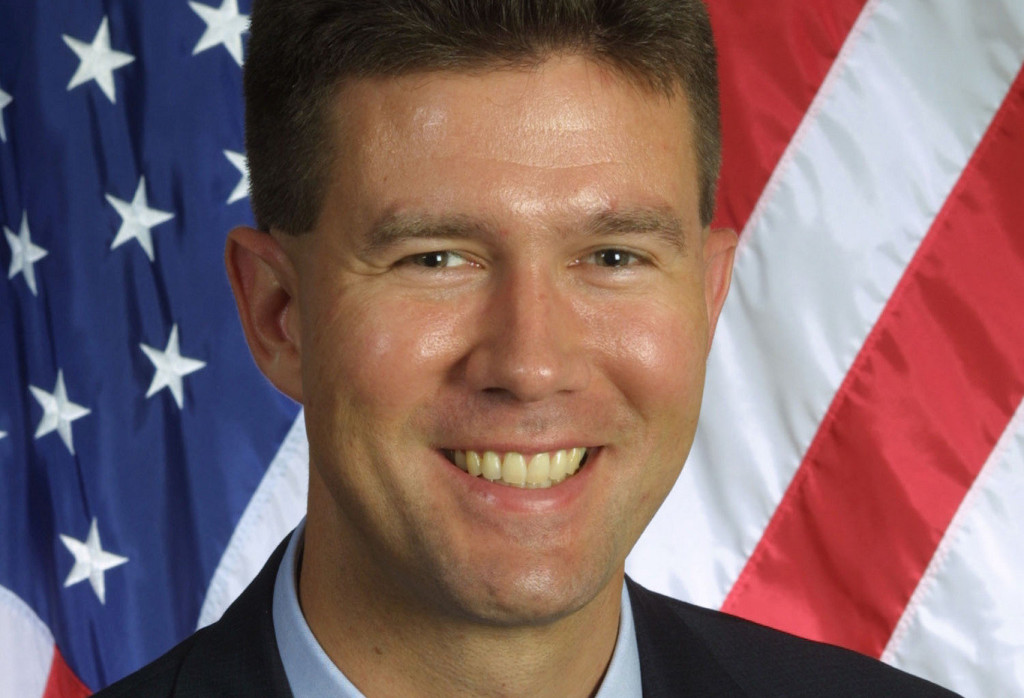
Alabama Secretary of State John Merrill announced on Tuesday that his office has successfully resolved all election complaints from the 2016 election cycle and the 2017 Senate election. Since taking office, Merrill’s team has closed over 92 percent of election issues and complaints that have been submitted. “Our goal since taking office has been to make it easy to vote and hard to cheat,” Merrill said in a press release. “When I first sought this office, there was no process for documenting voter fraud reports. It is unfortunate complaints like this have to be made at all, but I am proud of the way we have worked to follow through and get them closed or reported to the appropriate authorities.” In March of 2015, former Alabama Attorney General Luther Strange and the Alabama Law Enforcement Agency partnered with the Secretary of State’s office to form the Alabama Elections Fairness Project; a united effort to “investigate and prosecute allegations of voter fraud or campaign finance irregularities,” according to AL.com. The team has since created a page on the Secretary of State’s website where concerned individuals can report suspected fraud or suspected violations of the Alabama Fair Campaign Practices Act in state and local elections online. Since April of 2015, Merrill’s office has received 764 complaints about voting issues from several sources, including personally observed voting fraud. Of the 764 complaints received, the office has only 58 remaining cases under investigation. The following is a breakdown of which organizations closed the 706 complaints which were resolved: Seven closed reports were handled by Merrill’s office 24 were sent to the ethics commission 37 were reported to the Attorney General 151 were closed due to lack of sufficient information 39 were reported to local or state law enforcement two were withdrawn 446 were closed generally Each member of the Alabama Elections Fairness Project received complaints in accordance with their jurisdiction. For example: complaints sent to the Ethics Commission involved campaign material or finance issues and those sent to the Attorney General’s office were sent because the complaint contained “improper procedures in the administration of the election process, absentee balloting issues or misuse of campaign materials,” according to the press release. “Our office is committed to serving the citizens of Alabama and to doing our part to uphold the rule of law,” Merrill continued in the press release. “We work closely with our law enforcement agencies at the local, state and federal levels to ensure these issues are properly investigated and vigorously prosecuted. We currently have several cases under investigation that could lead to criminal charges, and we hope that serves as a deterrent for people who would seek to harm our electoral process in the future.”
Walt Maddox announces public safety plan

On Thursday, Democratic gubernatorial candidate and Tuscaloosa Mayor Walt Maddox announced his plan to improve public safety throughout Alabama. Since 2010 roadway fatalities in our the Yellowhammer State have risen a whopping 155%, while at the same time Alabama has dropped State Trooper staffing to a third of its recommended level. According to the State Troopers Association, fewer than 300 Troopers patrol the entire state, a number that should be closer to 750 according to the Alabama Law Enforcement Agency (ALEA), and should be more than 1000 according to the Center for Advanced Public Safety at the University of Alabama. According to Maddox, this means: Big trucks speed through Alabama with impunity Drunk drivers go undetected Drug and human traffickers face little risk of arrest Overweight vehicles tear up our roads Those in need of emergency assistance have much longer wait times because at current staffing many Troopers have to cover multiple counties. Maddox has a plan to remedy that problem and hopes to improve those facts. “In the City of Tuscaloosa, where I’ve been mayor since 2005, we’ve had tremendous success in promoting and improving public safety. Over the past 10 years, my administration has overseen a 45 percent decrease in burglaries, 42 percent decrease in auto thefts, 35 percent decrease in murders, and 18 percent decrease in robberies,” said Maddox. “Tuscaloosa Police Department is one of the best trained and equipped law enforcement agencies in Alabama.” Read his full plan here.
Eric Mackey sends memo to school superintendents outlining new safety program

As schools across the state begin opening for the fall and in the wake of school shootings across the county one issue on nearly every parents mind is school safety. On Friday, State Superintendent of Education Eric Mackey sent a memo to city and county Superintendents across the state outlining the suggested implementation of Governor Kay Ivey‘s Alabama Sentry Program. In May Ivey announced her new plan to provide additional security measure in schools that do not have a School Resource Officer (SRO). The voluntary program will permit administrators in schools, without an SRO, to maintain a firearm on campus in a secured safe in order to be prepared to respond to an active shooter situation. The Sentry Program will require that the administrator successfully complete training created and certified by the Alabama Law Enforcement Agency (ALEA). Unlike teachers, school administrators have complete access to their schools and are responsible for the safety of all students at the school, not an individual classroom. In his memo, Mackey emphasized that the program is completely voluntary on the part of the school administrator, and that no school board may require their participation. He also outlined eleven steps as the suggested process for school administrators if they choose to take part in the program, including: The local board of education, in consultation with the superintendent, must decide whether to participate in the Alabama Sentry Program. The decision to participate is considered an amendment to the school safety plan in accordance with Section 16-1-44 (C)(2), Code of Alabama, 1975, which is not subject to certain provisions of the Alabama Open Records Act, Section 36-12-40, Code of Alabama, 1975. The local board of education should consult with its own legal counsel regarding any policy amendments, changes to the safety plan, as well as any open records and/or open meetings requirements. The local board of education, through its superintendent and/or legal counsel, should initiate an agreement with the local sheriff if it wishes to implement the ASP whereby the authorized school administrator is appointed as a reserve deputy sheriff. The local sheriff will vet each approved candidate to ensure all requisite qualifications are met such as mental and physical fitness for duty as detailed below. The ASP is, at its most essential level, an agreement between the local board of education and the local sheriff. Both of these entities should consult their own legal counsel regarding the type, extent, parameters, and term of any proposed agreement. A sentry candidate must be a school administrator who is properly certified by the local sheriff and works in a participating school system where the local board of education has voted to implement the program. Such a candidate who wishes to become a sentry should send a letter to the superintendent establishing his or her desire to participate. The Alabama State Department of Education (ALSDE)issued certificates, which are considered “school administrator’ certificates for the purpose of this program are: Instructional Leader, Educational Administrator Principal and Career and Technical Administrator. The superintendent may decide whether to forward the letter to the local sheriff for full evaluation and provisional approval. If the letter is forwarded to the local sheriff, it is the responsibility of the sheriff, subject to the agreement previously made between the sheriff and the board, to determine fitness of the sentry candidate. The sheriff will be responsible for completing each of the following for each sentry candidate at a minimum: Physical fitness for duty evaluation, Psychological fitness for duty assessment, using validated instruments and in-depth personal history evaluations Drug and alcohol screening, Background check and Valid pistol permit verification. After the local sheriff validates fitness of the candidate, he or she will refer the candidate to ALEA. ALEA will notify the candidate of training opportunities and requirements. ALEA will copy the local sheriff and the local superintendent on its communications with the candidate. After ALEA has certified that the candidate has completed the required training to serve as a sentry,ALEA will certify such to the local sheriff. The local sheriff may then deputize the sentry candidate who may then be authorized as a reserve deputy sheriff as provided by law. See Ala. Code $16-1-44.1 (1975). The local sheriff will notify the local superintendent of this action. The procurement of any authorized equipment such as a firearm, ballistic vest or biometric safe is the sole responsibility of the local board of education. Read Mackey’s full memo below:
Alabama panel addresses school safety
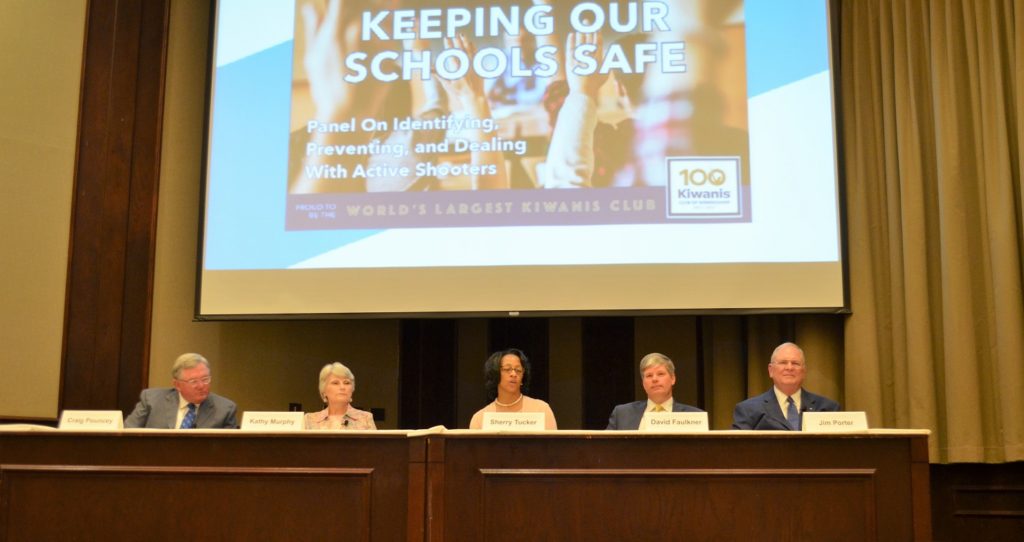
As educators prepare for a new school year, leading their discussions is the issue of keeping students safe, in a time when no corner of the country seems immune to school violence. Tuesday, the Kiwanis Club of Birmingham hosted a school safety forum with two local superintendents, the president of the Alabama Education Association, a state legislator and the former president of the National Rifle Association. While they differ on how to keep students safe, they agreed on one point: Something needs to be done. In a perfect world, they said, every school would be assigned its own police officer, known as a school resource officer (SRO). Since most districts can’t afford police for every school, keeping students safe could mean installing metal detectors, adding security cameras or blocking outside entrances. For the more rural and poorer school systems, a new – and controversial – law allowing administrators to be armed under certain circumstances could help. The forum, “Keeping Our Schools Safe: Identifying, Preventing and Dealing with Active Shooters,” featured as panelists Craig Pouncey, superintendent of Jefferson County schools; Kathy Murphy, superintendent of Hoover city schools; Sherry Tucker, president of the Alabama Education Association; state Rep. David Faulkner, whose district includes Jefferson County; and Jim Porter, past president of the NRA. The Jefferson County school system is the state’s second-largest, with 36,000 students and 56 schools. Some of its schools are urban, others extremely rural. Some are 50-plus years old; others are state of the art. For the upcoming school year, the district bought 2,555 devices that add a secondary lock to classroom doors in a lockdown situation. The district added five SROs, bringing the total to 27. “We can’t put an SRO at every school, it’s just not financially feasible for us,” Pouncey said, adding that the additional five SROs cost the district $400,000 annually. He is not in favor of arming educators, a point agreed with by Murphy. Murphy said Hoover is “privileged” to have an officer stationed at every school, with three SROs assigned to each of the high schools. She’s been on the other side of that equation when she was superintendent of Monroe County schools. “In Monroe County, there was a little community known as Packers Bend. It took me an hour and 10 minutes to get from the central office to drive to that school, which was on the other side of the Alabama River,” she said. “It was always that little school that troubled me. Sixty-one children are in that school.” The program does not include teachers, and will require that the administrators successfully complete training created and certified by the Alabama Law Enforcement Agency. In rural areas, response time for first responders can be 45 minutes or more, said Faulkner. Those are the areas that could benefit from the new sentry program announced in May, which permits administrators in schools without an SRO to have a secured firearm on campus. The NRA’s National School Shield Program was created in 2012 following the fatal shooting of 20 students and six teachers at Sandy Hook Elementary School in Newtown, Connecticut. Porter, an attorney who was president of the NRA from 2013 to 2015, said the goal of the program is improving security and preventing future shootings. “The important takeaway here is that any school that needs help finding additional security measures, we will help free of charge,” he said, adding that no school system in Alabama has applied for the NRA’s help. After the forum, Birmingham Board of Education member Mary Boehm spoke about the March shooting at Huffman High School that left student Courtlin Arrington dead. “We have figured out that the student voice is what really matters,” Boehm said. “After the shooting at Huffman, it was clear that the students knew this gun was in the school. They know about guns that are in our schools every single day.” Mental health is one of the biggest challenges facing school systems, she said. “When I called my colleagues at mental health, I was told that funds have been cut so drastically that we are barely able to serve adults, let alone children,” Boehm said. “And we’re not prepared to handle that.” Republished with the permission of the Alabama Newscenter.
Kay Ivey announces plan to arm school administrators

In the wake of school shootings across the county, Gov. Kay Ivey is taking precautionary action. On Wednesday she announced a new plan that provides for an additional security measure in schools that do not have a School Resource Officer (SRO). Dubbed the Alabama Sentry Program, the voluntary program will permit administrators in schools, without an SRO, to maintain a firearm on campus in a secured safe in order to be prepared to respond to an active shooter situation. The Sentry Program will require that the administrator successfully complete training created and certified by the Alabama Law Enforcement Agency (ALEA). Unlike teachers, school administrators have complete access to their schools and are responsible for the safety of all students at the school, not an individual classroom. “The Governor’s SAFE Council recommended adding more School Resource Officers throughout our state, a solution that I support, and will work with the legislature to implement. However, until we have a concrete plan to increase the number of SROs, we must provide a way for schools to protect their students in the upcoming school year. I have created the Alabama Sentry Program to provide additional security measures for our children, and to utilize the current summer break to train those who volunteer to be a sentry,” Ivey explained. “The Alabama Sentry plan is a reasonable and measured approach to provide an additional tool for schools without a resource officer. With the unfortunate continued occurrence of school violence across our country, we cannot afford to wait until the next legislative session.” The Sentry Program will be established immediately, through administrative action, under existing law, as a bill to arm school teachers failed this legislative session. Joining Ivey for the announcement were Alabama Secretary of Law Enforcement Hal Taylor and Alabama’s new Superintendent of Education, Dr. Eric Mackey. “I believe this is a common-sense approach to increasing security in our schools. The SAFE Council worked hard with officials from around the state to create a list of recommendations. I applaud Governor Ivey and members of the SAFE Council for creating this program,” Taylor said. “School security is one of the highest priorities for law enforcement and this program will help first responders identify and stop threats quicker and before they happen.” A school administrator must seek the approval of their local superintendent, local school board, and county sheriff to participate in the Sentry Program. School administrators seeking to assume the duties of school sentry: must possess a valid Alabama school administrator certificate and a valid concealed-carry pistol permit; must be appointed as a reserve sheriff’s deputy; must be an active school administrator in a public elementary or secondary school without an SRO; and must pass a drug screening, a mental-health assessment, and a stress test. Sentries will be subject to random drug screenings, annual training, mental-health, and stress test recertification. “Schools are sanctuaries of learning and, as such, they must be safe places for our children to learn, knowing that the adults around them are watching out for their safety and security. With recent events around our country, now is the time to act,” Dr. Mackey added. “The Alabama Sentry Program is one way for us to put more safety resources in schools without having to seek new funding. This is truly a step in the right direction. I look forward to working with Secretary Taylor and the entire SAFE Council to implement this program.” A school sentry’s duties will be written to include “the use of lethal force to defend the students, faculty, staff, and visitors of his or her school from the threat of imminent bodily harm or death by an armed intruder.” School sentries shall only exercise their duties in response to an armed intruder. School sentries will be required to keep their firearms in a secured weapon storage system. School sentries, or their employing board of education, shall be responsible for acquiring and maintaining a weapons-storage system, an approved weapon, ammunition, and a specially-designed bullet-proof vest. The program is slated to be in place to start the 2018-2019 school year.
State crash data shows seat belt use critical in saving lives
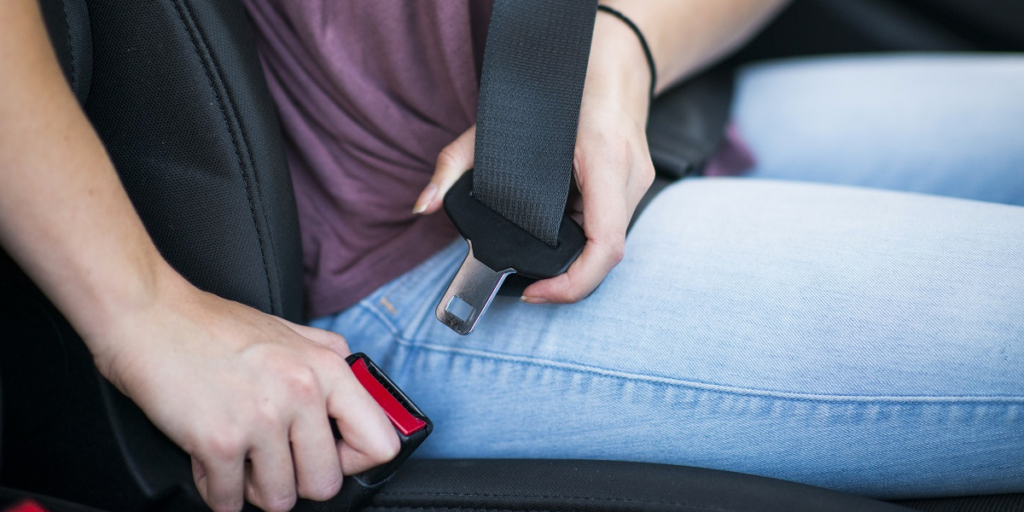
By: Adam Jones | Communications Specialist Senior/Research at the University of Alabama Those involved in auto crashes while not wearing seat belts are 40 times more likely to die than those who buckle up, according to an analysis of state crash records from the past five years. For the study, University of Alabama researchers at the Center for Advanced Public Safety examined crash records from 2013 through 2017 provided by the Alabama Law Enforcement Agency, or ALEA. Crash records showed about one out of every 25 unrestrained motorists involved in a crash will suffer a fatal injury, but only about one out of every 1,000 restrained motorists involved in a crash will have a fatal injury. This means that people are 40 times more likely to be killed without restraints. One reason for this is those ejected from vehicles during crashes have 50 times the death rate as those who remain in the vehicles, and the probability of being thrown from vehicles increases about 337 times for those not restrained. “There is no doubt that seat belts are the most effective way of reducing the chances of getting killed in a crash,” said Dr. David Brown, a research associate at CAPS who led the study. “The chances of avoiding a crash altogether that involves injury over your driving lifetime is very low, so these are not just hypothetical or extreme examples. They are real life-and-death probabilities.” Along with an increased chance of dying in a crash if unrestrained, there is an increased chance of serious injury. About one in seven unrestrained motorists involved in a crash will sustain a serious injury, while only about one in 50 properly restrained motorists will have a serious injury. The chances of serious injury for those unrestrained increase by more than a factor of seven. For those who buckle up, nine out of 10 are not injured during a crash. Some of the other interesting factors include driver and passenger demographics and other correlations: Those between the ages 17 and 36 are unrestrained significantly more than average. Males are about twice as likely to be unrestrained as females. If all back-seat occupants were properly restrained, it would result in an estimated saving of 62 lives per year in Alabama. Unrestrained drivers are about 2.5 times more likely to have their crashes in the rural areas than in the cities. Brown said there are many things drivers should do to prevent severe traffic crashes in addition to the use of seatbelts. They include, in the order of ability to prevent fatal crashes: Slowing down, as the probability of fatality doubles for every 10 mph increase. Pulling over to a safe stopping point until distractions, such as cell phones, are resolved. Never driving or riding with anyone who has had any alcohol or who has taken any mind-altering drugs, even if prescribed. Anticipating and avoiding bad weather, especially when coupled with darkness. Watching for deer if traveling just after dark and slowing down. Driving defensively to reduce risk by putting distance between others vehicles, staying out of the blind spots of large trucks and letting aggressive drivers pass. This article as first published on the University of Alabama website.
Alabama officers investigating inmate’s death in county jail

Alabama law officers are investigating the death of an inmate at the Walker County Jail. Al.com reports that 37-year-old Bryan Michael Freeman died at the jail Tuesday afternoon. Authorities said he’d been booked into the jail April 23, after Jasper police arrested him on two warrants for failing to appear in court. The sheriff’s office asked the Alabama Law Enforcement Agency to investigate the death Tuesday. Officials said details from the investigation will be sent to a grand jury. Republished with the permission of the Associated Press.
Heartfelt prayers and reactions to Rep. Allen Treadaway losing daughter
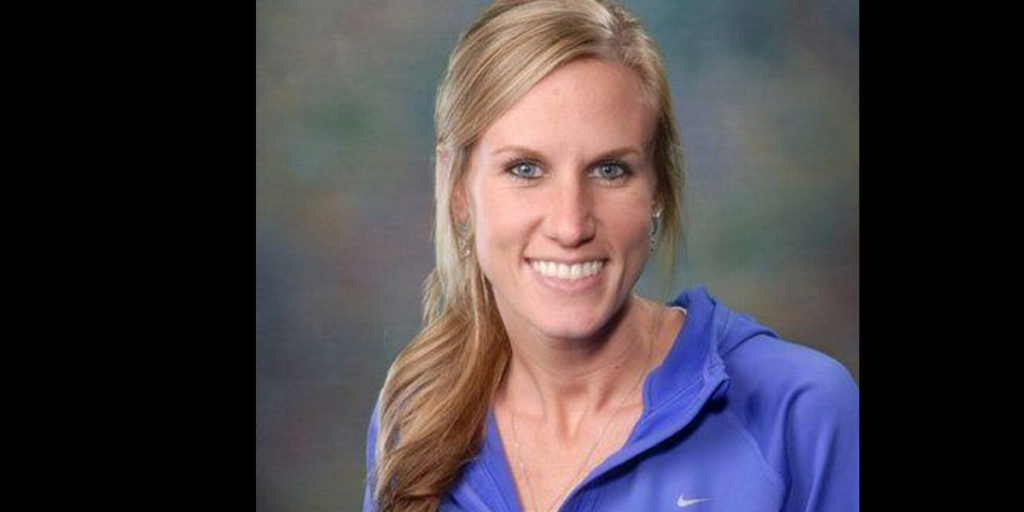
The daughter of Morris-Republican state Rep. Allen Treadaway was killed in an early morning wreck on Sunday near Good Hope, Ala. according to a release from Speaker of the House Mac McCutcheon. Kelsey Marie Treadaway, 31, was pronounced dead at the scene of the accident following an accident where she was struck from behind by another vehicle. The Alabama Law Enforcement Agency (ALEA) said she was not wearing her seatbelt. Treadaway was the volleyball coach at Mortimer Jordan High School, where she graduated from in 2004.Shawn Maze, the school’s softball coach, was also in the vehicle and sustained injuries from the crash. Here’s what folks across the state are saying in response to the horrific accident: Alabama Speaker of the House Mac McCutcheon: The Alabama House of Representatives is an elected body that has different political views and ideas. But we are respectful and mindful of each other’s personal needs and concerns. We come together to pray for each other and support each other in times of tragedy and crisis. Right now our thoughts and prayers are with Allen, his wife Susan and their family. May God comfort them and give them the strength to endure during this time of sorrow. Jefferson County Board of Education: We are deeply saddened by the loss of an outstanding teacher, coach, and role model in our district. Kelsey Treadaway was a graduate of Mortimer Jordan High School in 2004. Treadway was an incredibly dedicated PE teacher, volleyball coach, and basketball coach. She began her career with JEFCOED at Clay-Chalkville High School in 2010 before returning to her alma mater in 2012. Kelsey Treadaway will be missed by the Mortimer Jordan community as well as our Jefferson County family. Our thoughts and prayers are with her family, friends, and students. Gov. Kay Ivey (via Twitter): Was sorry to hear of the sudden passing of the daughter of Rep. Allen Treadaway. My thoughts & prayers are with their family, friends and the high school students she taught. I know she will be greatly missed. February 25, 2018 Alabama Attorney General Steve Marshall (via Twitter): I want to extend my deepest condolences to Rep. Treadaway, whose daughter was killed in a car wreck this morning. Please keep Allen and his family in your prayers. February 25, 2018 State Rep. Danny Garrett (via Twitter): Please pray for my friend and colleague, Rep.Allen Treadaway, whose daughter died this morning as the result of a traffic accident. Allen and his family need your prayers and the comfort of all their friends. February 26, 2018

